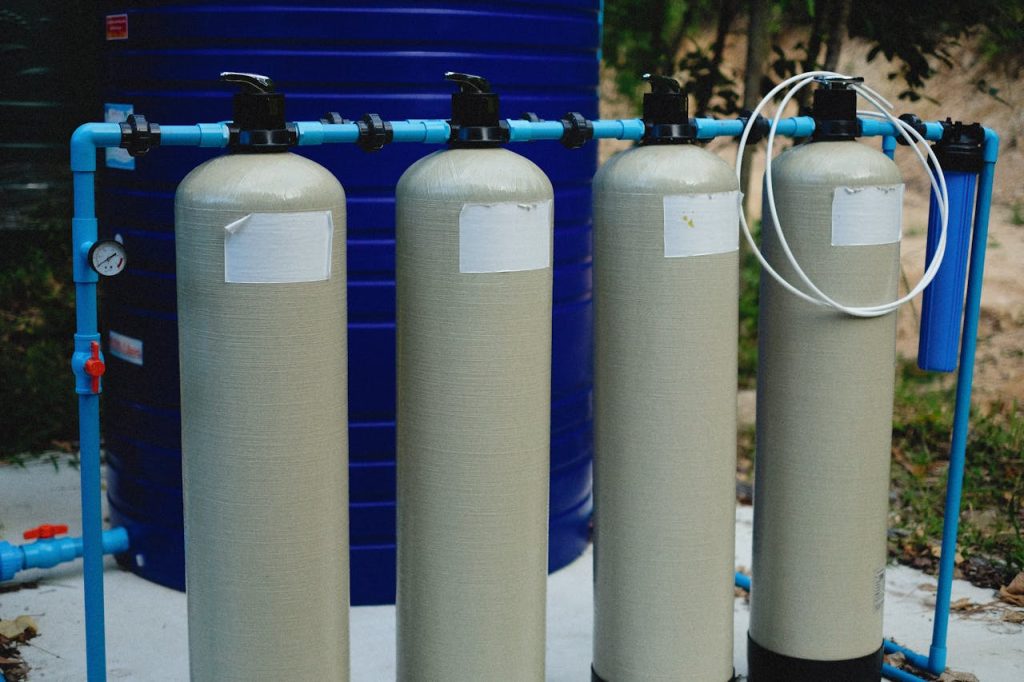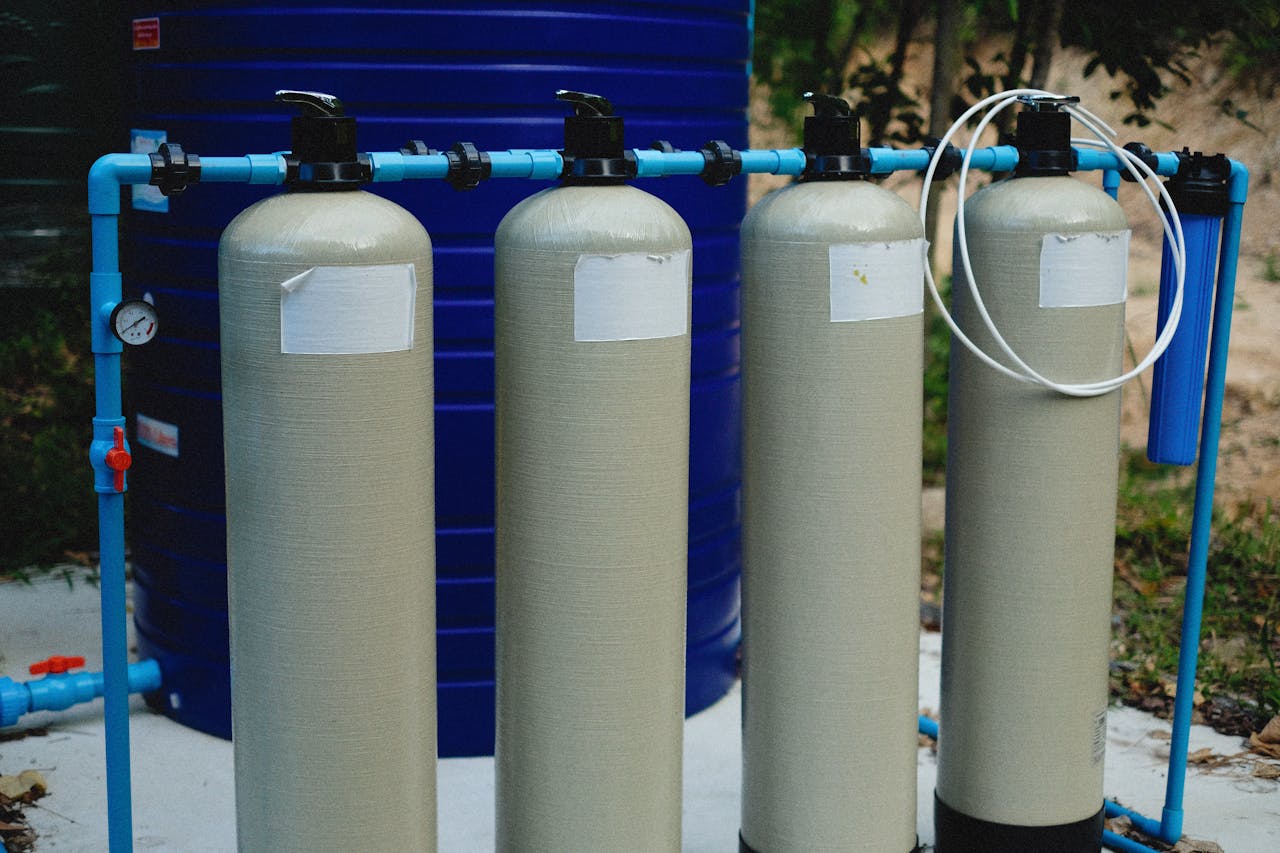For many industries in Kenya, the health of equipment is directly tied to the quality of water running through it. From boilers and cooling towers to manufacturing systems and food processing lines, untreated or poorly treated water can cause corrosion, scaling, and bacterial fouling. These issues shorten equipment lifespan, reduce efficiency, and lead to unexpected downtimes.
In 2025, smarter businesses are turning their focus to water treatment not just for regulatory compliance, but to protect their equipment and investments. At Spenomatic Kenya, we’ve worked with hundreds of industrial players who saw firsthand how proper water treatment dramatically extended their equipment life and improved their bottom line.
Let’s dive into how water treatment achieves this, the risks of neglecting it, and how you can future-proof your systems.

Why Water Quality Matters for Equipment
Water might look clean, but beneath the surface it often contains minerals, oxygen, chemicals, and microbes that can wreak havoc on machinery. The most common problems include:
- Scaling: Hard water leads to scale deposits, especially in heat exchangers and boilers. This reduces heat transfer and forces systems to work harder, consuming more energy and wearing out faster.
- Corrosion: Even a small amount of dissolved oxygen can corrode metal surfaces, weakening equipment from the inside out.
- Biological fouling: In untreated cooling systems, bacteria and algae grow rapidly, clogging pipes and causing microbial-induced corrosion.
All these factors contribute to higher maintenance costs, equipment replacements, and unplanned downtimes.
Common Mistakes Businesses Make With Water Treatment
Many businesses either ignore water treatment completely or treat it as a one-time setup. Here are some of the biggest mistakes we’ve seen:
- Using off-the-shelf solutions: Generic chemicals or systems don’t account for the unique composition of your local water supply.
- Skipping regular monitoring: Water conditions can change due to weather, municipal supply issues, or internal system variables. Without ongoing testing, you’re flying blind.
- Ignoring pretreatment: Feeding poor quality water directly into boilers or systems without filtration and softening is asking for trouble.
- Not training personnel: Even the best systems fail when not operated properly. Teams must be trained to monitor and respond to water quality issues quickly.
The Real Benefits of a Proper Water Treatment Program
When done right, water treatment isn’t just maintenance, it becomes a performance booster. Here’s what companies gain when they take water quality seriously:
1. Extended Equipment Life
Removing scale-forming minerals and corrosion agents allows systems to run at optimal conditions. Heat exchangers, boilers, chillers, and pipes last longer, perform better, and require fewer interventions.
2. Reduced Energy Consumption
A scaled boiler or fouled cooling system works harder to transfer heat. Clean systems reduce energy consumption, saving thousands of shillings monthly.
3. Lower Downtime
With less corrosion and microbial growth, your operations are less likely to grind to a halt. That means improved productivity and less frustration for your maintenance teams.
4. Better Product Quality
In industries like food and beverage, pharmaceutical, or textiles, untreated water can contaminate processes. Water purity directly influences your final product.
5. Compliance and Sustainability
Proper treatment helps you meet environmental discharge regulations and contributes to your sustainability goals by reducing water wastage and chemical overuse.
How We Approach Water Treatment at Spenomatic Kenya
At Spenomatic Kenya, we don’t believe in one-size-fits-all solutions. We start with a comprehensive analysis of your water source, system type, and industry-specific needs.
Our process includes:
- Water audits and testing
We check for hardness, pH, conductivity, biological content, and other parameters that influence treatment strategy. - Custom-designed treatment systems
From softeners and reverse osmosis units to dosing pumps and demineralizers, we recommend solutions based on your exact water quality and usage patterns. - Ongoing support and monitoring
We don’t stop after installation. We stay engaged with periodic testing, system tuning, and remote monitoring tools. - Team training and handholding
We work alongside your teams to ensure they understand how to use, monitor, and adjust systems effectively.
Our goal is simple: to help Kenyan industries extend equipment life, reduce costs, and operate more sustainably.
Signs You Might Need Better Water Treatment
- Frequent boiler or chiller breakdowns
- Rust or discoloration in water lines
- Scaling on valves, pipes, or tanks
- High chemical usage with poor results
- Increased energy bills without change in output
- Complaints of inconsistent product quality
If any of these sound familiar, it’s time to take a closer look at your water treatment program.
Looking Ahead: Water Treatment in 2025 and Beyond
With water scarcity increasing and regulations tightening, the future of industrial water use is clear, optimize or fall behind. Water treatment is no longer a luxury or an afterthought. It’s a frontline strategy for businesses aiming for reliability, savings, and growth.
And as industries digitize operations, smart water treatment systems integrated with sensors and IoT dashboards will become the norm, providing real-time alerts and automated adjustments. Early adopters will benefit from longer equipment life, less waste, and stronger financial performance.
Conclusion
In today’s competitive industrial landscape, equipment failure and inefficiency are luxuries no business can afford. Water may seem harmless, but in untreated form, it’s a silent killer of machinery and processes.
Investing in a smart, consistent water treatment plan isn’t just about maintenance, it’s a strategic decision that protects your equipment, improves profitability, and ensures compliance.
At Spenomatic Kenya, we’ve made it our mission to empower industries with smarter water systems. If you’re ready to stop treating symptoms and start preventing problems, let’s talk.
Frequently Asked Questions
- How does water treatment extend equipment life?
It prevents scale, corrosion, and biological fouling, three major causes of equipment wear and failure, thereby improving lifespan and efficiency. - What type of water treatment system is best for my industry?
It depends on your water source and application. Spenomatic Kenya conducts detailed water audits to design customized solutions. - How often should we test our industrial water system?
Ideally monthly for most systems, but high-risk operations may require weekly or even continuous monitoring. - Is water treatment expensive to implement?
The upfront cost is far lower than the long-term cost of equipment replacement, breakdowns, and energy loss. It pays for itself quickly. - Can Spenomatic Kenya support nationwide operations?
Yes, we serve businesses across Kenya and East Africa, providing tailored solutions and ongoing technical support.

